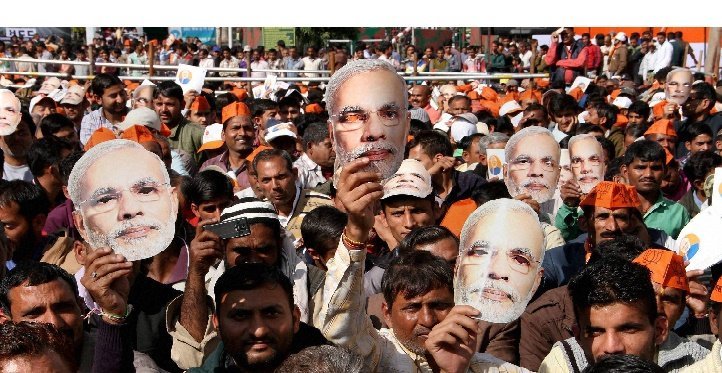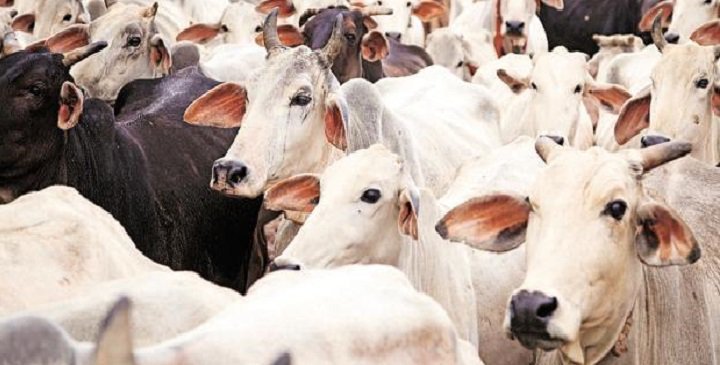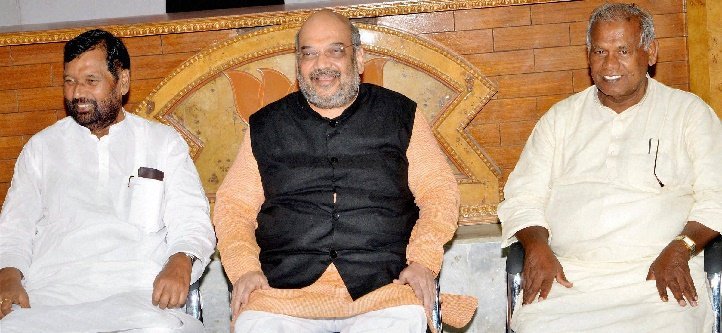The Bihar election results are out and despite exit polls predicting a close competition, it finally ended with the Janata Dal (United) – Rashtriya Janata Dal – Congress alliance winning a comfortable majority to form the next government. Here are five things we’ve learned from this election:
Star campaigner Narendra Modi needs more support

First there was Delhi and now there’s Bihar. While in Delhi there was a chief ministerial candidate, in Bihar there was one presumed to be waiting in the wings (Sushil Modi). But in all state polls since 2014, there has been one common factor for the BJP: the face of every campaign continues to be Prime Minister Narendra Modi.
In Bihar, Amit Shah may have camped in the state for months, attempting to ensure the BJP and its allies come to power. But while he handled the nuts and bolts, Modi was at the front and centre of the campaign. He made the personal attacks, he made the headlines, he was the guarantee the BJP would stick to the agenda of development and would rise above the caste politics that the state had seen earlier.
But after Sunday’s result, while the Prime Minister’s face may continue to be the biggest photo in every campaign poster in the future, his stardust may not be key to success. Bihar has shown that local leaders, ones that people are willing to trust their votes with, remain key for any party to win in future.
Beef politics doesn’t win polls yet
“A cow gives milk, it doesn’t give votes” Surjit Bhalla, Chairman of Oxus Investments, speaking on an India Today panel perhaps came up with the best zinger on how the BJP picked the wrong issue to highlight.

Source: IStockphoto
First the BJP gave a muted response to the Dadri killing, then the Prime Minister went after Lalu on his comments on beef, and in a coup de grace the party issued an advertisement asking Nitish to stop vote bank politics asking if he agreed “with statements of his friends on beef”. Did the beef issue cost the BJP the Bihar polls? No. But did it help the party? Definitely not.
Beef may be an emotive issue but it still isn’t an issue that wins you polls. And the BJP may finally have to acknowledge that.
The Opposition’s voice is going to get louder
The biggest surprise of the Bihar election is the fact that Lalu Prasad Yadav is back to being a power player in the state. This despite the Janata Dal (United) and the alliance’s chief ministerial candidate Nitish Kumar enjoying greater goodwill than him.
If a leader, whose biggest achievement is bringing ‘Jungle Raj’ to the state, can win the most seats after being rejected twice before, it is perhaps the biggest sign that a united opposition can topple the BJP juggernaut .
There was talk of leaders from various states coming together to form an alliance before the 2014 polls, and it’s bound to get louder in the coming days. Nitish may be the leader the opposition leaders will rally around for now. But the number of heavyweights in the opposition could rise in the coming days.
In 2016 there will be more state polls, many of which may not go in favour of the BJP. Jayalalithaa may hold on to Tamil Nadu, Mamata Banerjee may just hold on to West Bengal, and the only silver lining for the BJP may be Assam. The BJP will have to wait till 2017 when it can have a crack at the big states of Uttar Pradesh and Punjab.
But until then, the opposition’s voice will only get louder as they finally see chinks in the BJP’s armour.
The only promise that works is that of vikaas
Yes, acche din aren’t here yet. But by the looks of it, the promise and the ability to deliver development and progress will be key in all future polls. If it needs to win the only thing any party, including the BJP, can really do is first deliver on its promises and then promise more of it.
The Nitish-led Grand Alliance ran a campaign that may have had its roots in caste and religious issues. But the alliance never failed to highlight the fact that its chief minister had delivered on his promises of development and deserved another mandate.
Political pundits on television channels said that the BJP came to power in 2014 since its campaign focussed on tackling corruption and ensuring development. Changing that focus, evidently doesn’t work. It’s a good lesson for every political party.
Alliances are still key
Nitish swallowed his pride and a lot of harsh words he said in the past, to form an alliance with Rashtriya Janata Dal to stay in power. The Congress came on board, and despite the Samajwadi Party making a cameo appearance, the ‘Mahagathbandhan’ presented a united front against the BJP. The alliance matched the BJP barb for barb, kept up the allegations of communalism, caste and intolerance, and did not break ranks.

The BJP, on the other hand, had to rely on allies like Ram Vilas Paswan’s LJP, Upendra Kushwaha’s RLSP and Jitan Ram Manjhi’s HAM who were grumbling about each other before the polls. And in the end, none of them delivered. All three allies won seats in single digits, failing to deliver even half the seats that they were given as part of the seat sharing alliance.
In future state polls, the BJP might have to picks its allies with as much care as it chooses its candidates for polls. Or like it did in Maharashtra, become the biggest party and then pick its allies as per convenience. But for the Congress, it may have to be content with playing bit roles and clapping from the sidelines.

















